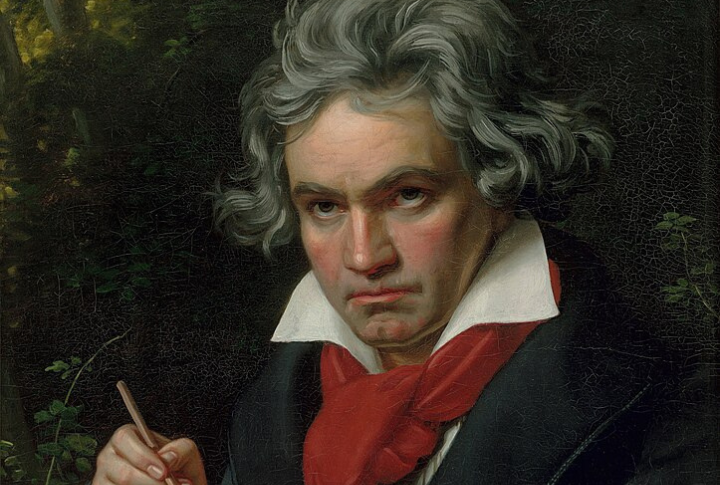
What if success isn’t just about talent but about routine? History’s greatest minds followed unique schedules, shaping their creativity and productivity. Some made it by discipline, while others thrived in chaos. Let’s explore the daily habits that fueled groundbreaking ideas and world-changing discoveries.
Leonardo Da Vinci

Da Vinci didn’t follow a rigid polyphasic sleep schedule but often worked late into the night, sketching and studying. He valued curiosity above all else, constantly switching between projects. His ability to balance work and creative exploration made him one of history’s true polymaths.
Benjamin Franklin

Franklin began each morning with a question: “What good shall I do today?” Meticulously planning the day, he balanced study and reflection. Discipline shaped his productivity. However, curiosity and experience fueled his success in science and writing.
Nikola Tesla

Obsessed with perfecting his inventions, Tesla often skipped meals and sleep. While he claimed to sleep only two hours a night, he took brief naps to sustain his energy. Tesla’s relentless work ethic led to revolutionary discoveries, but it also contributed to his declining health later in life.
Maya Angelou

In a sparse hotel room, Angelou wrote with only a legal pad, a dictionary, and a Bible by her side. She blocked out distractions, crafting words in solitude. This daily routine helped her create literary masterpieces. She proved that disciplined creativity thrives in carefully controlled environments.
Charles Darwin

Darwin didn’t rush brilliance. Mornings were for writing, and afternoons were for walks. Evenings were reserved for casual reading, as he believed in steady progress rather than exhausting himself. Darwin’s methodical approach led to the development of the theory of evolution.
Frida Kahlo

Despite chronic pain, Kahlo remained fiercely dedicated to her art. Each day, she dressed in vibrant clothing and adorned herself with jewelry. Painting from bed when necessary, routine for her wasn’t just about creativity but a declaration of strength and defiance against physical limitations.
Ernest Hemingway

Hemingway believed in writing with a fresh mind. He started early, stopping only when he knew what would come next. This trick ensured he never faced writer’s block the next morning. His discipline allowed him to craft some of the most influential works in modern literature.
Ludwig Van Beethoven

Each morning, Beethoven followed a strict rule: 60 coffee beans per cup for the ideal brew. After his coffee, he immersed himself in composing, often pacing the room and humming his melodies. This meticulous routine helped fuel his extraordinary musical output.
Sigmund Freud

Freud’s schedule revolved around analysis and writing. Work began at 7 AM, treating patients and theorizing late into the night. Even meals were consumed quickly so he could return to his studies. His rigorous routine laid the foundation for modern psychology and psychoanalysis.
Winston Churchill

Unlike most political leaders, Churchill’s routine was far from typical. He stayed in bed until noon, a habit that allowed him to dictate speeches and handle correspondence in the morning. In contrast to his afternoons, which were filled with political work, his evenings were devoted to socializing over long dinners.
Marie Curie

Curie spent endless hours in her lab, wholly absorbed in research. She often forgot to eat, prioritizing discovery over personal comfort. Her unwavering commitment led to groundbreaking work in radioactivity, a true example of relentless focus and passion in science.
Thomas Edison

Edison viewed sleep as inconvenient, working in intense bursts and taking short naps when exhaustion set in. Edison’s laboratory operated around the clock, which reflected his belief that innovation never rests. That work ethic led to over 1,000 patents, shaping the modern technological world.
Jane Austen

In the early morning, before the household awoke, Jane Austen wrote in solitude. Lacking privacy, she would quickly hide her pages when someone entered. Despite these challenges, her discipline and persistence led to literary masterpieces.
Pablo Picasso

At night, Picasso found the freedom to create. While others slept, he painted, experimented, and pushed artistic boundaries. Through his nighttime routine, he had the freedom to create without distractions, producing the bold and revolutionary styles that defined his legendary career.
Albert Einstein

Walking through Princeton each day, Einstein believed that movement helped ideas flow. As he strolled, he pondered theories, letting thoughts flow naturally. This simple habit played a role in his creative breakthroughs, which reinforced the idea that the mind works best when the body is in motion.
Virginia Woolf

Afternoons belonged to Woolf’s writing. She structured her day to ensure uninterrupted creative flow. Mornings were for reflection, evenings for socializing. By fiercely guarding her writing time, she produced groundbreaking novels that shaped modern literature.
Steve Jobs

Jobs consistently dressed in the same black turtleneck and jeans daily to eliminate unnecessary choices. By reducing trivial decisions, he freed his mind for innovation. The minimalist approach extended beyond clothing—he applied it to Apple’s product designs and made simplicity a core principle of his creative process.
Isaac Newton

Isaac Newton’s deep concentration made him oblivious to the world around him. Lost in thought, he often neglected meals, completely absorbed in calculations. Newton’s deep focus also led to groundbreaking discoveries in physics.
Elon Musk

The day is divided into five-minute blocks, ensuring every minute counts. Musk’s schedule efficiently balances engineering, meetings, and strategic planning, leaving no time unused. This level of precision allows Musk to successfully manage the operations of multiple companies.
Aristotle

Aristotle encouraged self-examination, believing wisdom came from questioning one’s actions. He didn’t ask a specific nightly question, but his philosophy emphasized learning through reflection. Aristotle’s routine helped shape Western thought.

